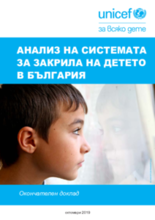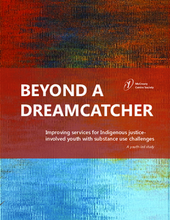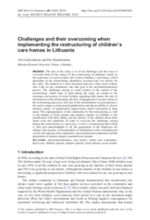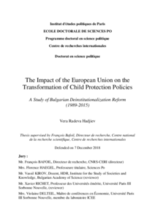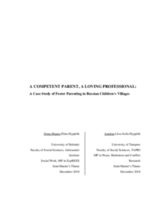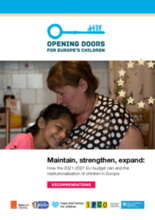Displaying 221 - 230 of 691
The aim of the study is to highlight the basic social services provided to children and their families as well as the main reasons for abandonment of children and to propose measures to improve social services for children to ensure social security in the regions.
This research is based on a stock-taking of the current situation. It is based on a comprehensive literature review and a genuine primary research with service users as well as policy makers, service providers, children and families.
The Christian Alliance for Orphans has offered this challenge grant opportunity to spark innovation as child-serving organizations create or expand effective family care solutions for children. The organizations have reported their progress in a series of videos.
This youth-led study sought to capture the perspectives of Indigenous youth who had been involved in the criminal justice system (or who were at high risk of such involvement), and who had accessed substance use treatment and/or had experienced barriers to accessing substance use services.
The aim of the study is to reveal challenges and the ways to overcome them in the context of the restructuring of childcare, based on the experience of social workers who work in children’s care homes in Lithuania, which participate in the restructuring.
This doctoral research explores how the European Union membership has changed the post-communist heritage of institutional care in Bulgaria, focusing on the transformation of orphanages through the deinstitutionalization reform
Using data from Ghana—a country that has initiated reintegration of children from residential care facilities, therefore providing a natural opportunity for comparative research—the authors of this study from the Children and Youth Services Review used hope, whether the child has been reunified with family/caregivers or remained in the care facility, and a statistical interaction of the two, along with controls, to predict the Child Status Index, an internationally-established measure of child wellbeing.
This thesis takes a range of Russian Children’s Villages as its case study in an attempt to investigate foster parents’ perceptions of parenting and thus shed light on the present-day development of the alternative care system in Russia.
These recommendations have been developed by the Opening Doors for Europe’s Children campaign and are based on the work of the campaign since 2016, calling for a stronger commitment to maintain, strengthen and expand the use of EU funds for deinstitutionalisation reforms in Europe.
In this video, Dr. Kristen Cheney discusses how her work led her to study the growth of the Orphan Industrial Complex and its adverse effects on children, families, communities, and child protection systems.

